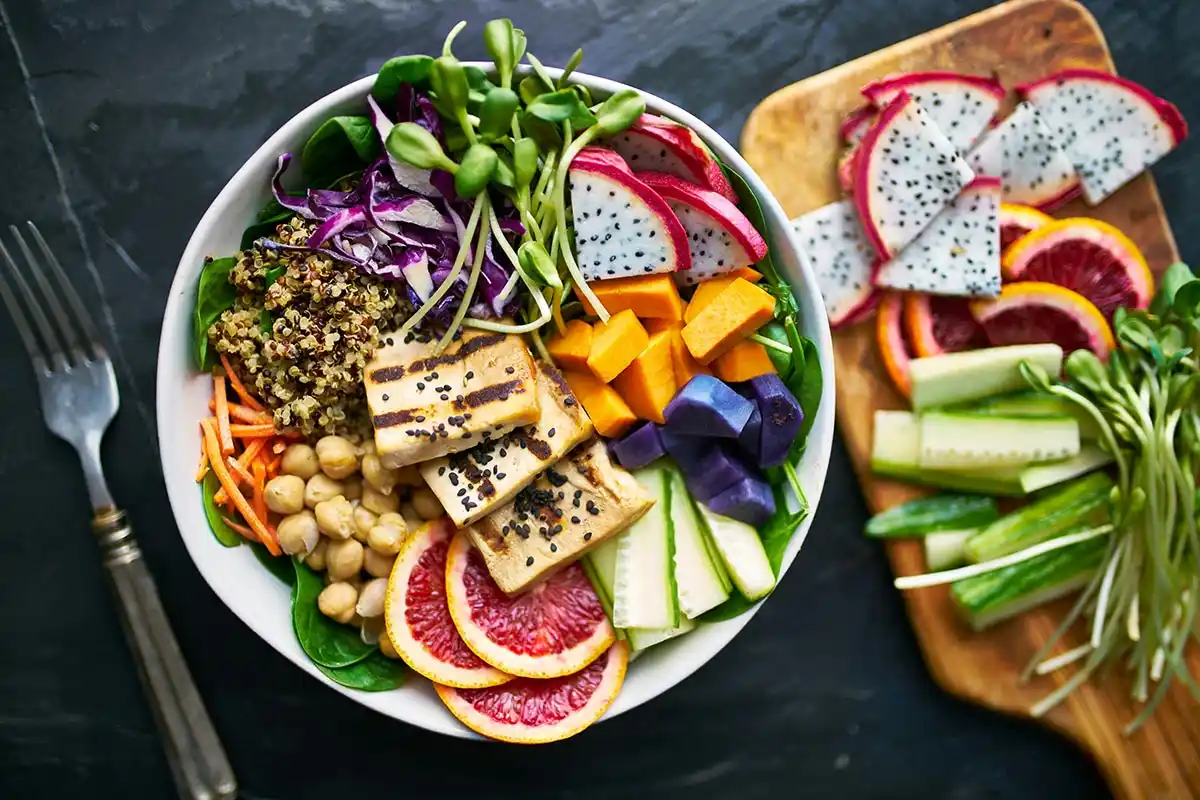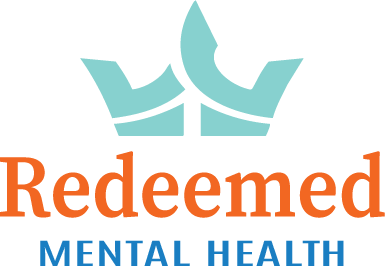 If you’re struggling with mental health, you’re probably aware that nutrition is an important part of managing your health. For many of us, who have little to no experience with nutrition, eating well can sound like picking a few foods. After all, most of us have heard of superfoods and specific fruits or vegetables or healthy fats that are good for your brain health.
If you’re struggling with mental health, you’re probably aware that nutrition is an important part of managing your health. For many of us, who have little to no experience with nutrition, eating well can sound like picking a few foods. After all, most of us have heard of superfoods and specific fruits or vegetables or healthy fats that are good for your brain health.
Unfortunately, that’s not quite how it works and there’s no magic wand to cure depression or improve your mental health. The good news is that healthy eating for your mental health and to support recovery from depression often means eating a diverse range of foods and getting a varied diet. Of course, there’s more to it and we’ll go into that in the rest of the article.
What Foods are Good for Fighting Depression?
Often, it’s the case that some foods are extremely good for you because they are healthy, affordable, and accessible. For example, apples are one of the best fruits you can eat. However, food is better when you eat a diverse range of fruits, vegetables, and protein sources. The more you mix your diet up, the higher the chances that you’re having a healthy and well-balanced diet.
- About half of every meal should be unprocessed fruits and vegetables
- About half of your grain intake should be whole grain
- You need about 3 servings of low-fat high calcium dairy or equivalent per day
- About ¼ of every meal should be made up of protein sources
- You should eat different foods as often possible to vary your nutritional intake
It’s also important to keep in mind that what you avoid can be almost as important for your mental health as what you do eat. For example:
- Don’t rely on caffeine or sugary beverages that can disrupt your dopamine and serotonin systems and therefore disrupt how you feel.
- Don’t have more than about 1-4 cups of coffee per day
- Try to stick to no more than a can or about 12 ounces of carbonated beverages per day.
- Keep sugar to less than 10% of your daily calorie intake. That normally means less than 50 grams/12 teaspoons of sugar per day
- Keep fat to less than 20% of your daily calorie intake. That’s usually about 44-78 grams per day.
Following those rules, you automatically have to watch your intake of:
- Fruit juice
- Soda
- Energy drinks
- Baked goods
- Prepared / frozen meals
For example, if you look at the back of a pack of frozen lasagna, it’s about 12 grams of fat per 290 calories, meaning you’d max out your recommended fat intake before meeting your daily caloric requirements for the day if you ate nothing but that.
If you want more advice, including meal advice and shopping lists, government resources like MyPlate.gov offer it for free.
Talk to Your Doctor and a Nutritionist
 Nutritional disorders and deficiencies are very commonly co-occurring with depression and other behavioral health problems. Why? They feed into each other. You feel bad so you don’t cook a healthy meal and eat something unhealthy, rely on caffeine and sugar to get through your day, and then have a comfort meal to feel better at the end of it. You feel down later so you have chips or donuts to boost your mood. That eventually catches up with you and you feel worse. Or, you’re actually low on nutrients like Vitamin A, which can actually cause your mood to drop and for you to feel bad.
Nutritional disorders and deficiencies are very commonly co-occurring with depression and other behavioral health problems. Why? They feed into each other. You feel bad so you don’t cook a healthy meal and eat something unhealthy, rely on caffeine and sugar to get through your day, and then have a comfort meal to feel better at the end of it. You feel down later so you have chips or donuts to boost your mood. That eventually catches up with you and you feel worse. Or, you’re actually low on nutrients like Vitamin A, which can actually cause your mood to drop and for you to feel bad.
As a result, many mental health support centers actually incorporate nutritional therapy and recovery into their programs. That means you get a blood panel to see if you’re deficient on anything and then a targeted meal plan to help you get and stay healthy. Those plans also often involve helping you learn skills like meal prep and cooking nutritious food as part of it.
Talking to your doctor can get you that same blood panel and a recommendation to a dietician. From there, you’ll typically get a meal plan recommendation and help with planning food. Getting into meal prep and similar programs also means you’ll be able to prepare meals for the week ahead and you’ll have less temptation to go for unhealthy convenience meals.
What Does Eating Well Do for Depression
Nutrition impacts your mood, your energy levels, and your physical health. Those, in turn, impact your long-term mental health. Eating well makes you feel good. That will ensure you have a baseline of health to manage your depression so you can move towards recovery. Nutrition also impacts your mental health in fairly basic ways. For example, if you don’t eat enough proteins, your body can’t produce the serotonin and dopamine you need to feel good. If you don’t get enough vitamin D, you might actively experience symptoms of depression and fatigue. That’s also the same with Vitamin A. Yet, many Americans don’t get enough of either. Often, ensuring you have enough dairy and eat enough vegetables can balance both of those issues out – though you may need supplements if your doctor recommends it.
However, supplements are always an inferior choice to simply eating diverse foods. In fact, you don’t digest everything from supplements, which means that often you are wasting money because supplements pass through your system before being fully digested. Therefore, fruits, vegetables, whole grains, and diverse protein sources are still a much better way to boost your mental health.
Eating well will also boost your mood. Most of us are aware of how we feel bad after a day of eating nothing but fast food. The high salt and fat content of fries is satisfying in the short-term, but over a few days, offers nothing for the body other than sugars that are quickly used for energy or stored as fat. You need healthy food, and for about 80% of meals that you eat.
Improving Nutrition for Depression
 If you’re struggling with depression, improving your nutrition is one good step you can take. Many of us struggle to cook and eat well at the best of times, let alone when depressed. That normally means you’ll have to take steps to ensure you have the resources to do so. For example:
If you’re struggling with depression, improving your nutrition is one good step you can take. Many of us struggle to cook and eat well at the best of times, let alone when depressed. That normally means you’ll have to take steps to ensure you have the resources to do so. For example:
- Ask for help with cooking and preparing meals
- Do meal prep if you can manage
- Move into a social living or support housing situation with communal meals
- Go to inpatient therapy and get help with depression while building the skills and routines you need to eat in a healthy fashion
- Talk to your doctor and ask for advice
Eventually, everyone is different. You might have an easy time switching to a healthy diet. You might already have a healthy diet. On the other hand, you might not know how to cook, you might be too busy to easily add food prep into your routine, and you might have no real idea of what counts as healthy. Getting help means you’ll have someone help you with building habits and routine, with food prep, and with anything else you need to make your lifestyle support recovery and feeling good. That may mean you need a nutritionist or dietician, it may need you need social support, it may mean you need therapy, and it may mean you need something small like a meal box or other solution. You’re the only person who can gauge what that is. Good luck.

























